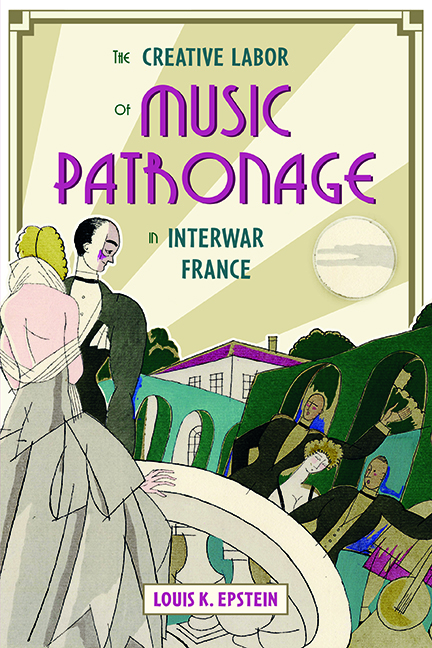Book contents
- Frontmatter
- Dedication
- Contents
- List of Tables
- List of Musical Examples
- Acknowledgments
- Abbreviations
- Introduction: Redefining Patronage
- 1 The Patronage Problem
- 2 Aristocratic Commissions
- 3 Entrepreneurial Patronage and Concert Dance
- 4 The Publisher as Patron
- 5 Jacques Rouché: The State’s Patron
- 6 Nationalizing Music Composition
- 7 Transatlantic Legacies
- Bibliography
- Index
- Music in Society and Culture
Introduction: Redefining Patronage
Published online by Cambridge University Press: 26 May 2022
- Frontmatter
- Dedication
- Contents
- List of Tables
- List of Musical Examples
- Acknowledgments
- Abbreviations
- Introduction: Redefining Patronage
- 1 The Patronage Problem
- 2 Aristocratic Commissions
- 3 Entrepreneurial Patronage and Concert Dance
- 4 The Publisher as Patron
- 5 Jacques Rouché: The State’s Patron
- 6 Nationalizing Music Composition
- 7 Transatlantic Legacies
- Bibliography
- Index
- Music in Society and Culture
Summary
In late 1927 the actress, dancer, and patron Ida Rubinstein wrote to Maurice Ravel to ask if he would orchestrate Isaac Albéniz's piano suite Iberia. The orchestration was to serve as a ballet score for the new company she was forming, hubristically titled the Ballets Ida Rubinstein. Although Ravel was sometimes hesitant to take on new projects, the price – 50,000 francs, or approximately $30,000 today – was right. In addition to the hefty fee, Rubinstein cleverly appealed to Ravel's love of orchestrating, his attraction to Spanish materials, and his bitterness at having had his last ballet rejected by the Ballets Russes. After Ravel encountered obstacles to securing the rights to Albéniz's piano pieces, he decided to compose his own Spanish exotica instead. First titled Fandango, Ravel later settled on the more accurate Boléro. Rubinstein set her ballet in a Spanish tavern, where the sensuous, flamenco-inspired movements of a female dancer (played by Rubinstein) drew a crowd's attention. Disgusted by Rubinstein's choreography, Ravel later pretended that he originally envisioned Boléro as expressing the rhythms of a factory. Much as Igor Stravinsky did with Le Sacre du printemps, Ravel tried to dissociate his score from its original, balletic context, archly describing it as an “experiment” consisting of “orchestral tissue without music.”
Ravel was a famously finicky composer, a perfectionist. Scholars have compared the intricacies of his music to the inner workings of the automata that he collected. His music is described in terms of artifice and “masks,” as a creative expression for the inscrutability he enacted in his personal life. For many, Ravel's music exudes the total control of a master craftsman. But only a composer who writes for the desk drawer can ever hope to exert total control over their music. In the case of Boléro, Ravel and Rubinstein each exercised varying levels of control over the piece's conception and composition. Neither Ravel nor Rubinstein fully determined the outcome of their work. Both deserve credit as its creators.
Following the premiere of Boléroat the Paris Opéra on November 22, 1928, after Rubinstein's eponymous troupe toured the piece throughout Europe for half a decade, Ravel's score came to overshadow its original, choreographic setting.
- Type
- Chapter
- Information
- Publisher: Boydell & BrewerPrint publication year: 2022



